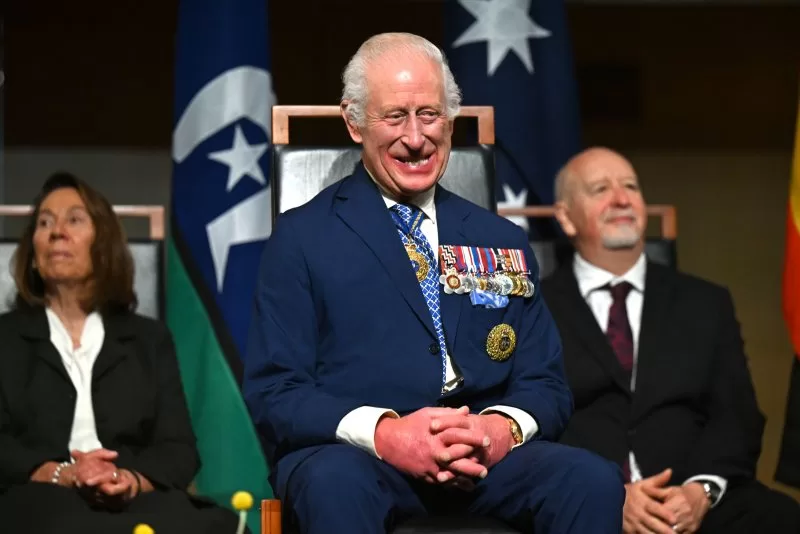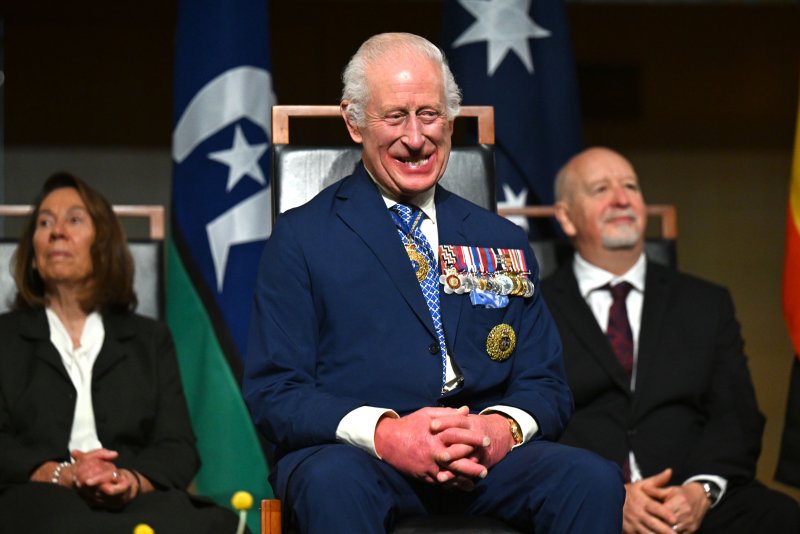Britain’s King Charles III Thursday acknowledged a painful past of Britain and the royal family’s profiting from human slavery, but did support financial reparations payments at a Samoan summit of Commonwealth leaders. Twelve British monarchs profited from the slave trade over a span of 270 years, according to historians. Photo by Lukas Coch/ EPA-EFE
Oct. 25 (UPI) — King Charles III acknowledged a “painful” past of Britain and the royal family’s profiting from human slavery, but did support financial reparations payments at a Samoan summit of Commonwealth leaders.
Speaking to the gathering in Chogm, Charles said, “the most painful aspects” of the British commonwealth’s past “continue to resonate.”
He said there is a need to “acknowledge where we have come from.”
According to historians, for 270 years 12 British monarchs sponsored, supported or profited from Britain’s human slave trafficking.
From Elizabeth I in the 1500s, who shared profits from the slave trade and gave a large royal ship to slave trader John Hawkins, all the way to William IV in the 1800s, Britain’s royal family directly benefited from slavery.
Some African and Caribbean nations have called for Britain and other European powers to pay financial reparations as compensation for slavery.
British Prime Minister Keir Starmer has ruled out reparations or even apologizing for Britain’s complicity in the slave trade, but has indicated a willingness to support debt relief and financial institution restructuring to partially address reparatory justice.
St. Vincent and the Grenadines Prime Minister Ralph Gonsalves said a reparative justice plan is needed that deals with the enduring psychological and socioeconomic impacts of slavery.
He noted that millions of dollars in compensation went to enslavers when slavery was abolished, while zero was paid to those people who were enslaved.
“There was nothing for them to start with and build on — no land, no money, no training, no education,” Gonsalves told The Guardian.
Calls for reparations in the British Commonwealth aren’t just attempts to get money paid to slavery’s victims of the past, it’s an effort to officially recognize that centuries of enslavement have had centuries of adverse impacts on descendants of slaves.
Just one company formed by British royals to conduct the slave trade took 41,923 African slaves captive on its ships from 1714-1740, according to the Slave Voyages database.
Queen Anne, who reigned from 1702-1714, dramatically expanded Britain’s slave trading by using the South Sea Company to secure a monopoly on supplying African slaves to Spain’s South American colonies.
In 2023, Charles III indicated support for researching royal family links to slavery after a 1689 document revealed King William III had a financial investment in a slave trading company.

